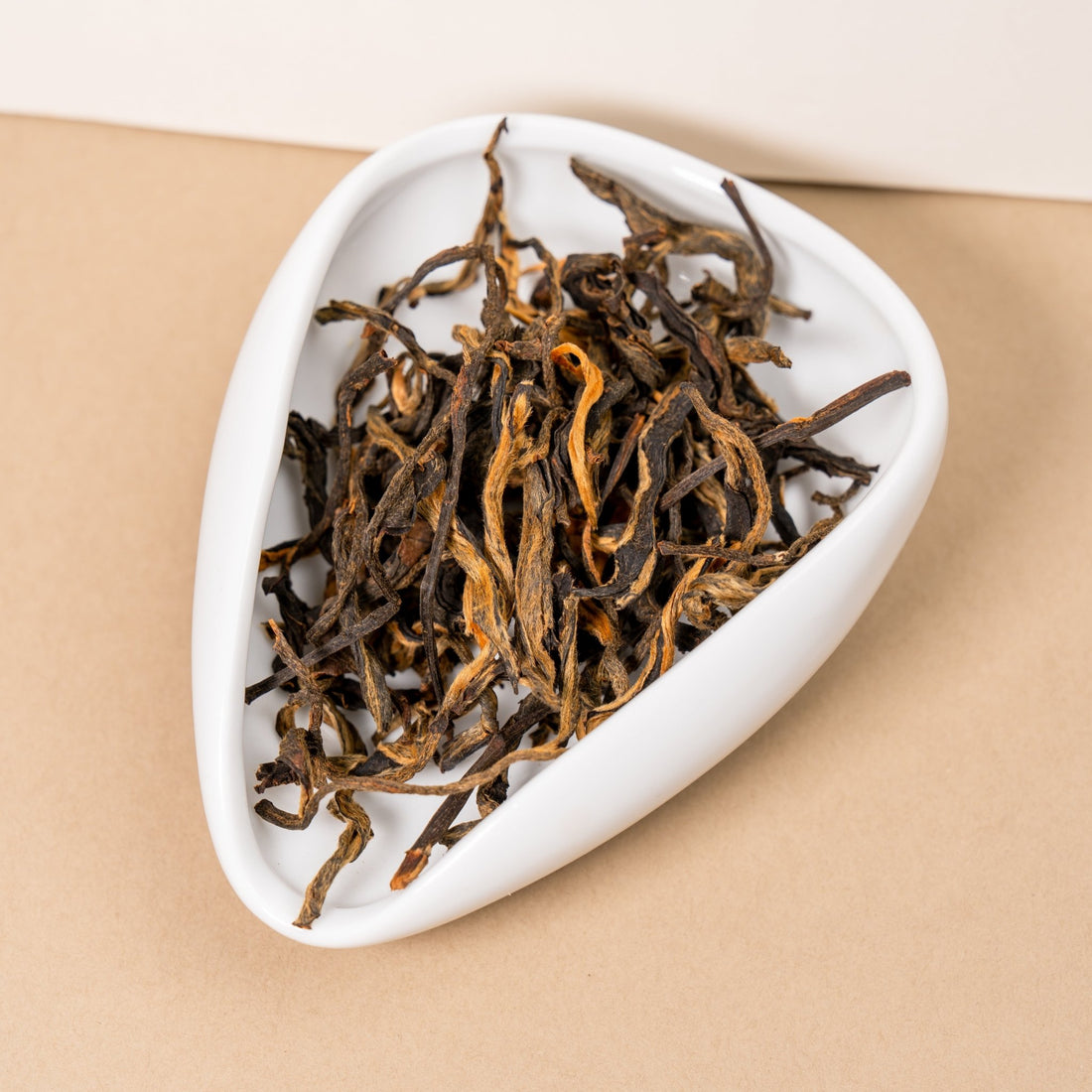
Dian Hong Black Tea: Yunnan’s Mountain-Kissed Red Treasure
Key Takeaways
- Dian Hong Black Tea, a premium Chinese black tea from Yunnan, thrives at 2,000 meters above sea level, with its flavor shaped by extreme daily temperature swings (scorching days, icy nights).
- Its signature traits: silky-smooth texture, honey-like sweetness, and subtle dried fruit notes, all unlocked by the century-old "Fengqing Method"—a meticulous fermentation process controlling temperature and humidity.
- It inspired Hermès’ perfume, blending its smoky warmth with osmanthus and apricot, highlighting its global appeal as a symbol of "quiet luxury."
- Brewing tips: Use 90-95°C water, a pre-warmed gaiwan, 4-5g tea for 150ml water, and quick decanting to preserve its sweetness.
Dian Hong Black Tea: Yunnan’s Mountain-Kissed Red Treasure
In the misty highlands of Yunnan, China, a black tea grows that’s as luxurious as it is humble. Dian Hong—short for "Yunnan Black Tea"—isn’t just a beverage; it’s a story of terroir, craftsmanship, and unexpected inspiration (yes, even for luxury perfumes). Let’s explore why this mountain-grown tea has captivated taste buds worldwide.
1. Origins: Born from Yunnan’s Extreme Terroir
Dian Hong’s magic starts with where it grows: the rugged mountains of Yunnan, at elevations around 2,000 meters. Here, nature plays a dramatic role: days are scorching under the sun, while nights plunge into near-freezing temperatures. This extreme "four seasons in one day" climate stresses the tea bushes, forcing them to concentrate nutrients and aromatic compounds.
The result? Leaves that are rich, robust, and brimming with flavor—far more intense than lowland black teas. Yunnan’s red soil, infused with minerals from ancient mountains, adds another layer, giving Dian Hong its distinctive depth.
2. The "Fengqing Method": A Century of Craft
What truly sets Dian Hong apart is the "Fengqing Method," a 100-year-old technique honed in Yunnan’s Fengqing County. Think of it as tea-making alchemy:
- Fermentation mastery: Tea masters carefully control temperature and humidity during fermentation, slowing the process to unlock layers of flavor. This patience transforms the leaves, softening their astringency and amplifying their natural sweetness.
- Gentle rolling: Leaves are rolled by hand (or with traditional machines) to release enzymes without breaking them, preserving their integrity and ensuring a smooth brew.
- Precise drying: Low-temperature drying locks in the tea’s honeyed notes, avoiding harshness and keeping the flavor bright.
This craftsmanship turns simple leaves into what’s often called "liquid gold"—a title Dian Hong earns with every sip.
3. Taste: Silk, Honey, and Sun-Dried Fruit
Dian Hong’s flavor is a symphony of contrasts:
- Texture: Silky-smooth, coating the palate like fine fabric—no rough edges, just pure elegance.
- Sweetness: Bold yet gentle, with a honey-like richness that lingers, not cloying but satisfying.
- Depth: Hints of dried apricot, raisin, or even a whisper of dark chocolate emerge, adding complexity without overpowering the tea’s natural brightness.
- Liquor: A vibrant amber-red, clear and luminous, reflecting the mountain sunlight that nurtures the leaves.
4. From Tea Cup to Perfume Bottle: Dian Hong’s Global Fame
Dian Hong’s allure isn’t limited to tea cups. Its unique aroma—warm, smoky, and subtly fruity—caught the attention of Hermès’ master perfumers. They crafted a perfume inspired by Dian Hong, blending its core warmth with osmanthus flowers and apricot zest, bottling the essence of Yunnan’s mountains.
This cross-over isn’t just a trend; it’s a testament to Dian Hong’s status as a "quiet luxury"—a product of time, terroir, and tradition, rather than flashy logos.
5. How to Brew Dian Hong Perfectly
To savor Dian Hong’s silkiness and sweetness, follow these steps:
- Teaware: Use a pre-warmed gaiwan (covered bowl) or porcelain teapot—porcelain preserves its delicate sweetness.
- Tea amount: 4-5 for 150ml water (adjust for stronger/weaker taste).
- Water temperature: 90-95°C—hot enough to extract flavor, but not so hot that it burns the leaves.
- Steeping time: 3-5 seconds for the first three infusions, then add to 5-20 seconds gradually per subsequent steep. Dian Hong is surprisingly infusion-resistant, yielding 5-6 rich cups.
- Pro tip: Avoid over-steeping—its sweetness fades quickly if left too long, turning bitter.
Dianhong is more than just tea—it’s a love letter from Yunnan’s high mountains to the world. With its luxurious taste, sunlit sweetness, and centuries of craftsmanship, it has won global admiration, transcending from teacups to perfume bottles.
https://nebutea.com/products/crimyun
